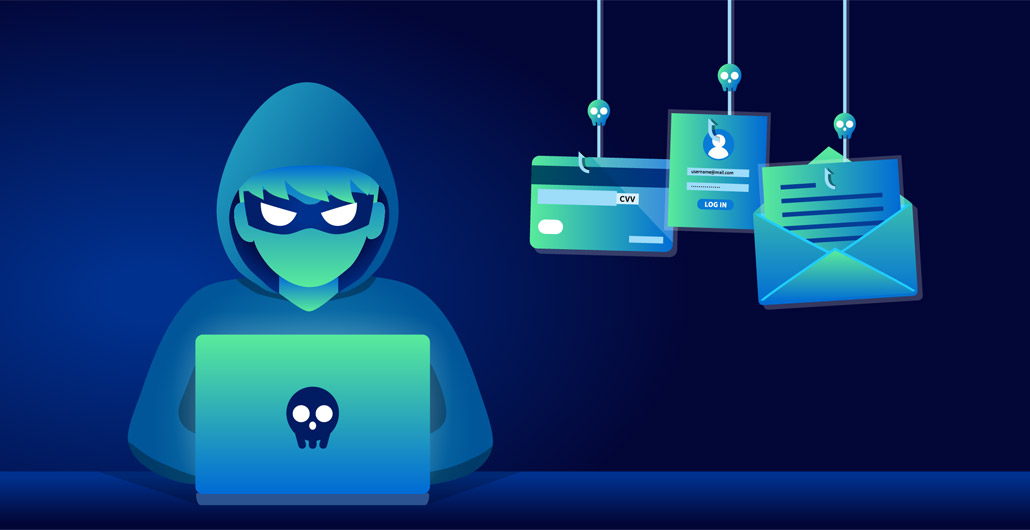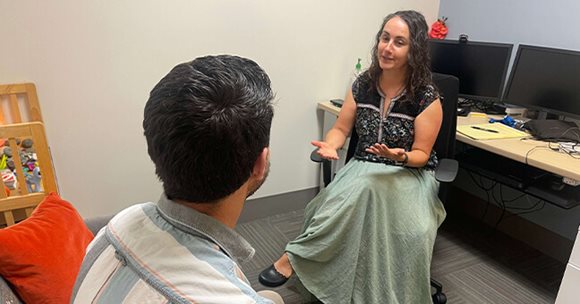Phishing scams have been around since the dawn of the internet. Most people have received email or other communications that try to trick us into divulging sensitive information, like your password and Social Security number. But the tricks scammers are using have gotten more sophisticated and harder to identify.
Instead of poorly worded emails, crooks are now using official-looking branding in their emails and fake websites. This branding looks nearly identical to the real thing, like your bank, Amazon or Netflix. Many of today's scams involve COVID relief, such as purporting to help you secure stimulus money or a loan. Others threaten you with account lockout or other consequences if you don't give up your personal information right now.
Here’s the takeaway:
If you ever feel threatened or uncomfortable with an email, or even just surprised or suspicious, don't open it.
If you weren't expecting it, or it appears to come from an official government agency, don't open it.
If it seems shocking or dangerously urgent, don't open it.
Even if something just seems off, don't open it. Send it straight to the trash where it can't hurt anyone.
As the head of information security here at Fremont Bank, I see scams and fraud every day. These are three of the most common tricks I’ve noticed since the pandemic began.
1. Send money … or else!
Have you ever received a threatening email? Many people have. Scammers often claim they have your password, have hacked into your computer, and will send compromising information or video to everyone you know. They may even include one of your actual passwords to sell their fictitious story. Or maybe the scammer will threaten you with loss of Social Security, residency, official status or other government services.
These scammers want you to send them money, pure and simple. Threats like these have proven to be very effective at panicking people into buying thousands of dollars worth of gift cards or bitcoin and sending them to the scammer.
Send extortion emails like these straight into the trash. The scammer did not hack your computer, and you can rest easy knowing you are safe.
2. Is your distant friend or family member in trouble?
Someone you haven't heard from in years just got mugged while traveling! And they knew you were just the person to help them out. A great many people have fallen victim to this scam.
A person claiming to be someone you used to know tries to convince you they need your help to recover from a bad situation. Just send them hundreds of dollars - or even thousands! - and you'll rest easy knowing you made a difference in someone's life.
Except this person is nobody you know and is undeserving of your help, because they prey on people's good nature to harvest thousands of dollars from unsuspecting Good Samaritans.
If you receive an email from someone you don't personally know, asking for your help, don't open it. Even if something just seems off, don't open it. Send it straight to the trash. Your friend or family member is not in trouble.
3. Oh, look! An unexpected check has arrived in the mail!
Check scams are becoming increasingly common right now, and scammers are taking advantage of COVID to adjust their dirty tricks. These scams come in a few varieties, but they have one thing in common: The checks are counterfeit.
You're asked to deposit the check on behalf of someone, and simply wire part of the money back to them. The problem is, your wire transfer will be an authorized, approved and authenticated transaction - while the check is not. If you deposit that check, it will bounce after a few days. If you wire money to the scammer, though, that money is gone.
Many of these check scams now leverage COVID to trick you. The fake check may appear to be a stimulus payment, or it may be from someone claiming to assist you with getting COVID relief. If you receive an unexpected check in the mail, what should you do? First, contact your bank to assess its legitimacy. But never, ever, ever, ever, ever send money to someone you don't know. Those who fall victim to a scam often never see their money again.
Fremont Bank has been serving the Bay Area for over 55 years. We have seen times of stress or strain, including the COVID pandemic, bring out the desire to be of service in many of us. But they also inspire bad actors to take advantage. Don’t be tricked! If you feel threatened or surprised, if you weren’t expecting it, if it seems shocking, DON’T OPEN IT! Learn more about Fremont Bank’s security and fraud prevention here.







